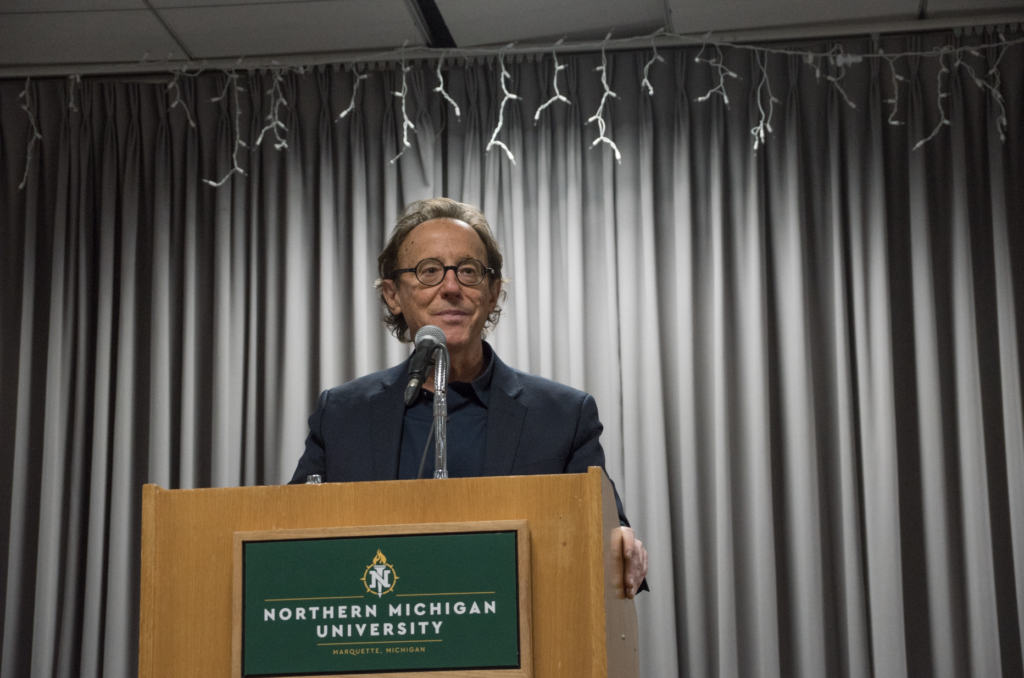“The only thing you share with every person of this country is that you’re a citizen,” Mark Lilla said, promoting citizenship as a means of resolving the disconnection between identities and ideologies in the United States.
Presented last Thursday, Lilla’s talk, “Identity and Citizenship,” served as the second installment in the Center for Academic and Intellectual Freedom (CAIF) speaker series titled “Reclaiming Free Speech and Academic Freedom on Campus.”
Lilla proposed to a group of students, faculty and community members that a 40-year history of movement and identity politics caused anti-government sentiments on the right and identity consciousness on the left to form, and both sides altered the meaning of what it means to be a citizen with reciprocal duties.
“On the right, you have an ideology that questions the existence of the common good; it denies our obligation to help our fellow citizens through government action,” Lilla said. “On the left, there’s an ideology that’s been institutionalized in our higher education that fetishizes group and individual attachments and casts suspicion on the word ‘we.’”
To repair the relationship between citizens, Lilla said the word “we” should be defined in terms that appeal to a collective, democratic imagination or “modern citizenship.”
“The concept of citizenship provides a political language for speaking about a solidarity that transcends our identity attachments without denying that those are there,” he said. “It provides an opening for discussing our duty toward each other.”
Lilla went on to explain how this concept of citizenship applies to identity politics and identity groups.
“The argument goes like this: citizenship is a political status, it’s nothing less and nothing more,” Lilla said. “We can buy two pairs of glasses; in certain respects I belong to a group, a small group, and in certain respects I share a destiny with other people.”
Lilla ended his lecture with a revised definition of liberalism.
“Liberals believe that citizens are not road kill, they are not collateral damage, they are not the tail of the distribution. A citizen is simply by virtue of being a citizen one of us,” Lilla said. “All we can do is to try to persuade over time, through education, the country’s tribes that appealing to our shared citizenship and trying to sure it up, is in every group’s interest.”
After concluding his lecture, Lilla welcomed questions from the audience. Nearly 10 were put forward, the first of which came from senior biology major and NMU College Democrats member Lucy Meyer-Rasmussen. She asked how a civic education could be brought back into schools.
Lilla said, “Universities are central because teachers and political leaders come out of them, but it begins by teaching our teachers and our professors to challenge some of these ideas.”
English writing major freshman Wesley Copeman found Lilla’s talk to be advantageous in understanding his book,“The Once and Future Liberal: After Identity Politics.”
“Lilla clarified a couple of points and elaborated on a couple of points, but the takeaway from the talk and the book is identity politics is destroying America,” Copeman said. “But to me, it’s no longer politics, it’s a personal attack on citizens and realistically, to solve these issues, it will be up to current students.”

























